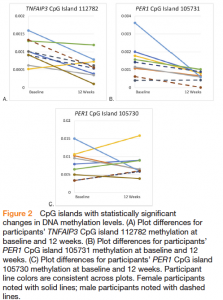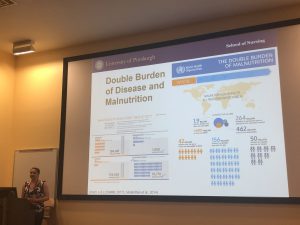During my time at Pitt, I have been fortunate to engage in 1) collaborative work with a nursing research mentor, 2) original work researching global health (specifically non-communicable diseases), and 3) data analysis for research projects and publications in peer-reviewed journals.
1) My collaborative work with my nursing research mentor has focused on cardiovascular disease, diabetes, sleep, and occupational health. We have conducted research in multiple forms – from literature reviews to creating participant recruitment fliers, from quantitative statistical analyses to qualitative reviews, from engaging participants with advanced chronic diseases to participants who are nurses in the healthcare setting. My research mentor and I have communicated our ideas both in-the-office and using technology. This has been a great opportunity for me to learn how to communicate in a professional setting. Research with my mentor has given me a chance to see how the scientific process progresses from beginning to end … and back to beginning again.
2) My global health research has focused on non-communicable diseases, specifically ischemic heart disease and type 2 diabetes mellitus. I completed a review of the literature to explore how risk factors for these conditions are similar and vary in different regions of the world. After this project, I would like to look at communicable diseases around the globe. The COVID-19 Pandemic has certainly taught us all that both communicable and non-communicable diseases occur everywhere in the world; while some places are certainly more affected than others and need specific interventions, there is also a great need for global awareness and collaboration. My global health research has allowed me to recognize diverse topics and the need to integrate interdisciplinary findings.
3) My analyses for research publications has focused on the genetics of diabetes and obstructive sleep apnea as well as wearable activity monitors. My co-authors and I have written reports of our quantitative analyses as well as reviewed published literature for studies’ use of activity monitors. I have presented my research in public forums as well. These have been at national and international conferences, including nursing organization conferences as well as interdisciplinary engagements. My research publications and presentations have given me the opportunity to learn about research dissemination and the importance of “getting the word out,” so evidence-based change and best practices can be implemented in everyday life.


